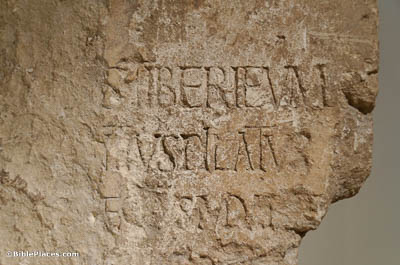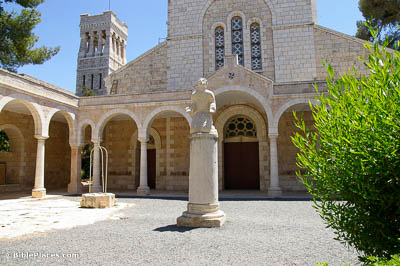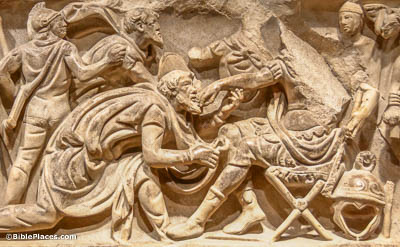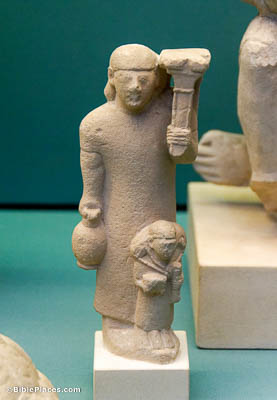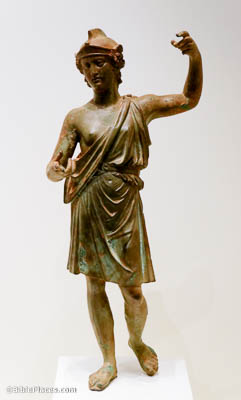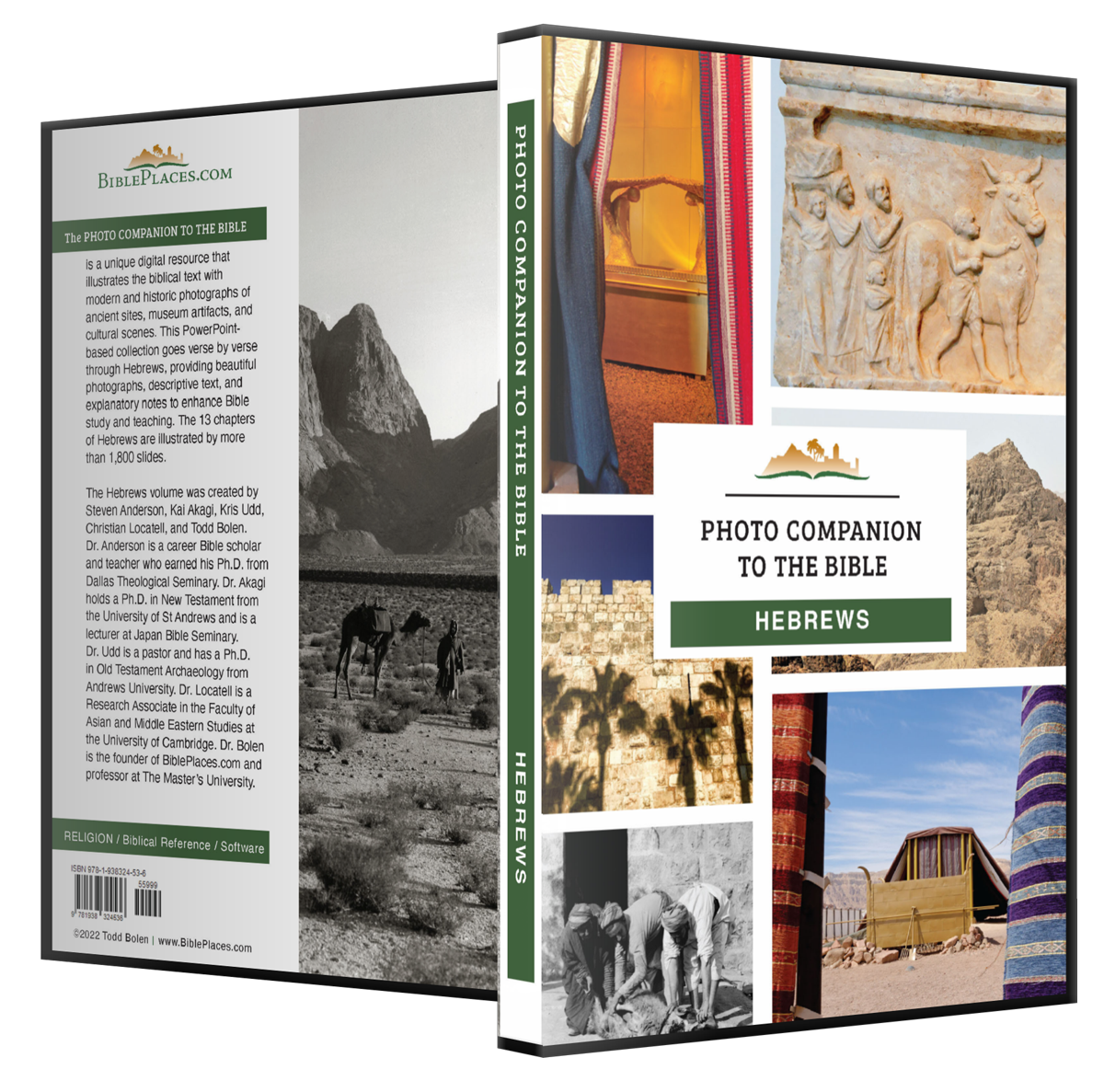Consider Him who has endured such hostility by sinners against Himself (Hebrews 12:3).
The official condemnation of Jesus to death came from the relatively minor governor of Roman Judea, Pontius Pilate. Pilate was appointed governor of Judea in AD 26/27, and he held the post until March of AD 37. This limestone inscription was found in 1961 in secondary use in the theater of Caesarea. A suggested restoration reads: “Pontius Pilate, Prefect of Judea, made and dedicated the Tiberium to the Divine Augustus.”
